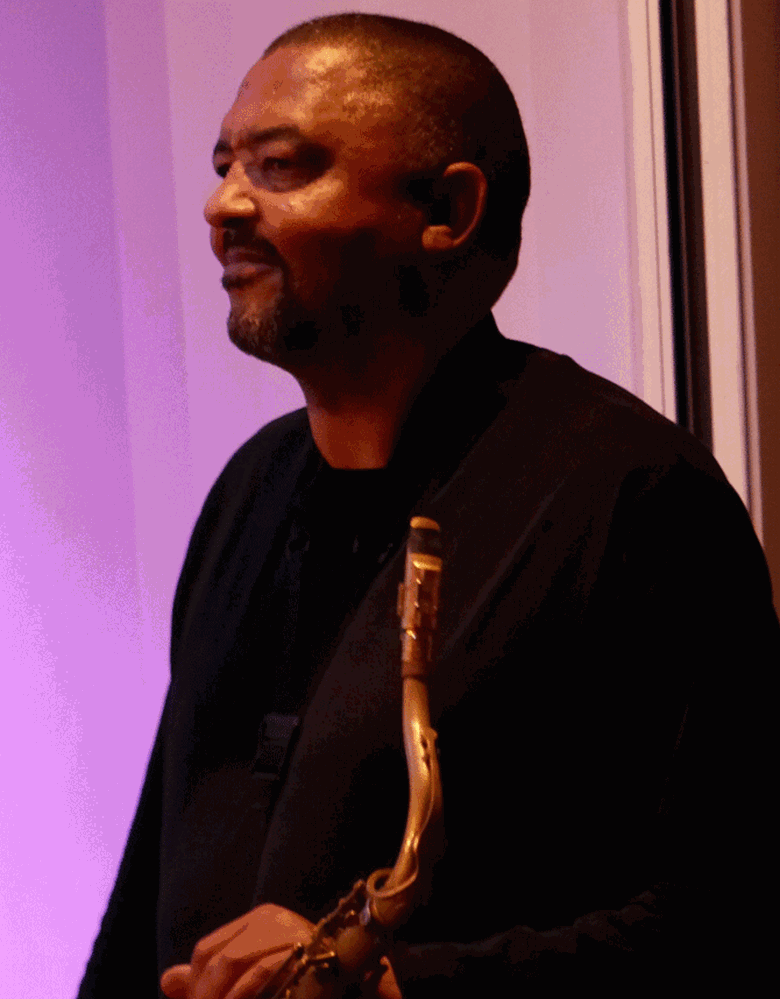Frank Williams' African Jazz Quartet bring South African sunshine to Oxford's St Aldates
Monday, March 20, 2017
After Frank Williams left South Africa in 1978 he made his name in the UK in the 1980s playing with fellow South African jazz exiles in Chris McGregor's legendary Brotherhood of Breath and, later, Dudu Pukwana's Zila.

For this show the tenor saxophonist brought his long history with township music to a packed upstairs pub room in Oxford. He was joined by guitarist Cameron Pierre, originally from Dominica, but a UK resident since he was 18, long-time collaborator Ghanan Kofu Adu on the drums and recent Royal College of Music graduate Ben Havinden-Williams on electric bass.
Tunes by both Chris McGregor and Dudu Pukwana were part of a first half dominated by Williams' long solos. He was on fine form and commanding attention, whether chugging away or exploiting his rich tone to full on a ballad that morphed into a semi funk. But even the authority of his playing couldn't conceal the fact that, with the exception of a brief sally by Cameron Pierre, his colleagues were rather tentative. Williams mentioned that the band hadn't rehearsed, so maybe this was the reason why.
Whether it was a half-time beer, the bandmembers getting more comfortable with one another or a desire to get on Williams' wavelength, the group upped their energy levels in the second half. Williams' tenor continued to be in the ascendant, but his colleagues were now making telling contributions. Williams' own compositions – 'Journey's Song', another semi-funk ballad with Cameron Pierre coming up with a neat Wes Montgomery-influenced solo and 'Cape Scape', inspired by the landscape seen through a bus window by the young Williams as he made the 10-hour journey from where he lived with his Grandmother to see his mother working in Cape Town – had echoes ranging from the pioneers of township jazz and the Jazz Epistles to the Trinidadian steelpan (this courtesy of Cameron Pierre's pedals, transforming the sound of his guitar).
The irresistible rhythms had begun to have an effect and there was a sunny atmosphere in the room with many of the crowd defying the lack of space and getting up to dance – unusual for Oxford, where audiences tend to be cool and detached. The inevitable demand for "one more song" led to a hasty conflab after which Williams led the quartet in a vibrant version of 'Hellfire', a tune that emerged from the mix of big band jazz with a traditional South African flavour in the black cultural hotbed of 1950s Sofiatown, a suburb of Johannesburg.
I wondered how this music would go down now in modern Johannesburg, but in Oxford the tune made a joyous climax to what, in the end, was a great night out.
– Colin May